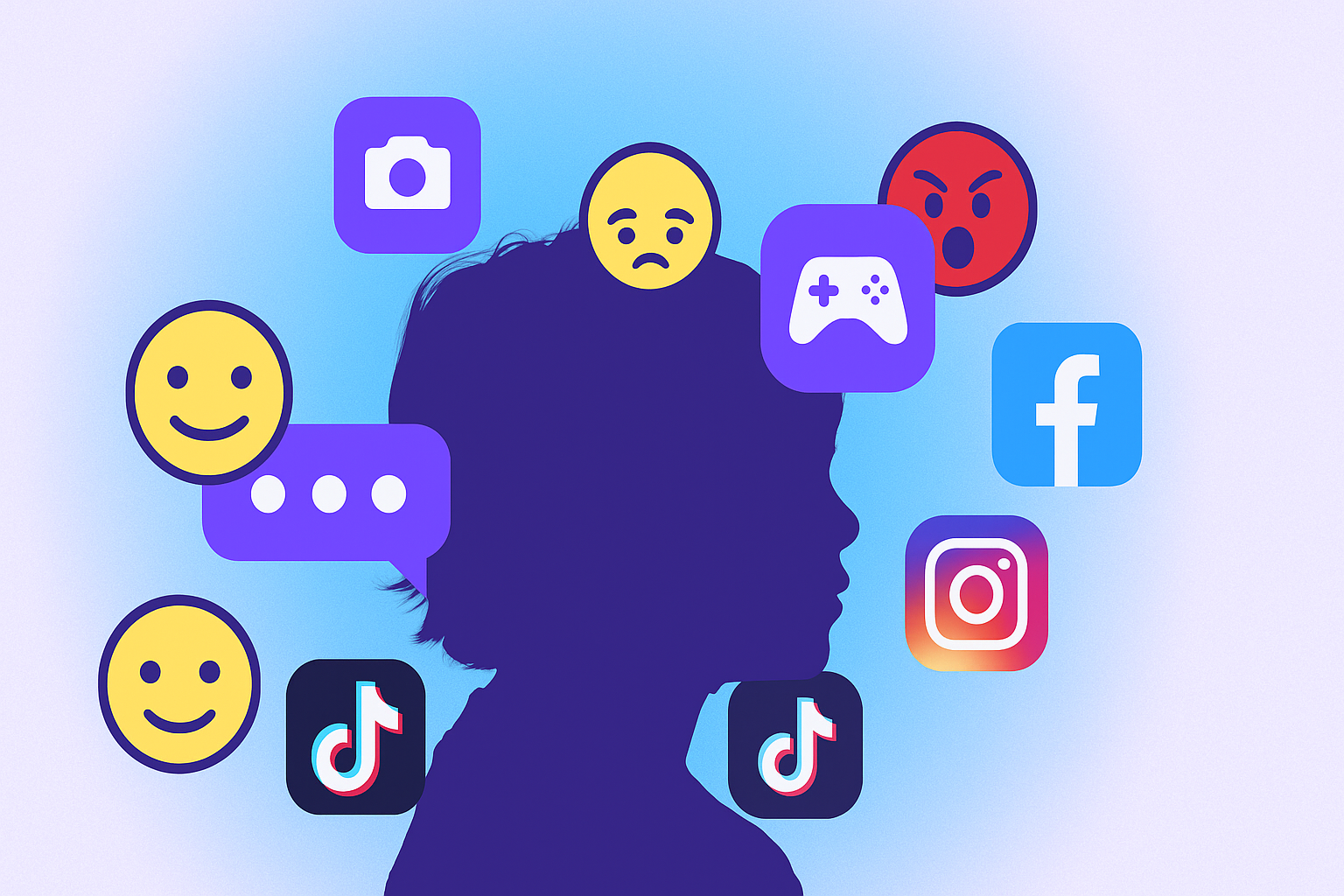KATHMANDU, Aug 9: We've all been there, standing in front of the TV, whether trying to copy the dance steps from a Bollywood item song or acting a scene out of a movie. It was playful, innocent, and usually remained inside the closed door. But in today’s world of TikTok, reels and algorithms, that moment of mimicry doesn’t disappear. It goes viral.
Even in Nepal, children as young as two are now dancing to adult-themed songs, gaining thousands of likes and shares. Take Samaira Thapa, for example, a child whose dance videos frequently circulate on Nepali social media. She’s adorable, talented, and yes, viral. But should we be cheering, or should we be concerned?
Around the world, children are becoming full-blown content creators. In the U.S., nearly 20% of influencer marketing campaigns now include children, part of an industry valued at over $32.5 billion globally. Some kids sign brand deals, feature in advertisements, or even sell merchandise under their names. But this visibility also comes with risk. A Wall Street Journal investigation found that 92% of the followers of one popular pre-teen Instagrammer were adult men, raising serious concerns about safety and exploitation.
Some countries already have laws in place. For example, in the US, the “Coogan Law” ensures that part of a child’s earnings go into savings. France has rules for YouTube and online child content, too. But in Nepal? We haven’t started this conversation yet.
Nepal to receive 35 types of childhood cancer medicines free of...

Social media in Nepal is growing quickly. As of January 2023, over 12.6 million Nepalis were using social media, and internet access had reached more than half the population. Cheaper internet and more smartphones mean that more families are online, and so are their kids. Smartphones have become part of everyday life, and so have the videos we shoot on them. Some parents post occasional cute moments. Others create regular content featuring their children.
Often, it starts with harmless fun: a baby’s first laugh, a birthday party, a cute costume. But when the camera keeps rolling every day, and likes and followers start growing, it can slowly turn into something more serious. That’s where we need to pause and think.
Are we sharing these moments for joy or attention? And what happens when strangers online become part of a child’s life before the child even understands what the internet is?
A study conducted during the pandemic found that 55.2% of Nepali children aged 3–10 experienced high screen time, often exceeding two hours daily. More alarmingly, a UNICEF-supported report revealed that 58% of children aged 8–12 in Nepal are exposed to at least one cyber risk, from cyberbullying to inappropriate contact, making digital safety a growing concern.
The International Labour Organisation says child labour includes anything harmful to a child’s mental or emotional health. If a kid is asked to pose, perform, or repeat takes regularly, even from home, it might still feel like work to them.
Nepal has laws against child labor in factories or on farms. But what about the digital world? When kids are expected to act for a camera, again and again, we need to ask: Is this still playtime, or has it become something else?
Around the world, parents are creating Instagram and TikTok profiles for their kids, sometimes even before they’re born. Nepal is also seeing a similar rise. Some influencers create accounts in their baby’s name and share regular updates, first smiles, birthdays, and even product promotions. A few Kathmandu-based parenting influencers have even started building their children’s “brands.”
A silly dance, a funny reaction, these small moments can be sweet and harmless. But when filming becomes a daily routine, and likes and shares start to matter more than the child’s comfort, something shifts. Suddenly, it’s not just about memories. It’s about performance.
Kids aren’t meant to work for views. They’re meant to play, to explore, to grow without pressure. If a video makes money, shouldn’t some of that go toward their future, not just today’s internet fame? And even if they’re too young to fully understand, don’t they deserve to be asked how they feel?
We’re living in a time where attention is currency. And in chasing that attention, it’s easy to forget that behind the screen is a child, not a brand. So maybe the real question is: are we letting kids be kids, or are we turning them into tiny entertainers always ready for the next post?





































